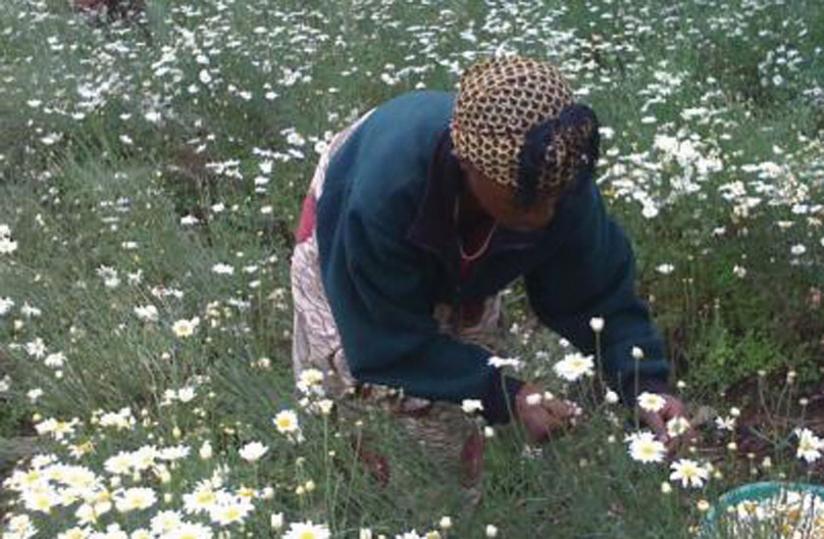There is need for joint efforts to increase pyrethrum production in the country to ensure sustainability of the sub-sector, Jerome Mureramanzi, the crop production manager at SOPYRWA, a pyrethrum processing firm, has said.


There is need for joint efforts to increase pyrethrum production in the country to ensure sustainability of the sub-sector, Jerome Mureramanzi, the crop production manager at SOPYRWA, a pyrethrum processing firm, has said.
Mureramanzi said though pyrethrum output has almost quadrupled over the past four years, the industry processed only 850 tonnes last year or 28 per cent of the industry’s production capacity that stands 3,000 tonnes per annum. He noted that most farmers still produce about one tonne per hectare instead of over two tonnes if they observe best agronomic practices and apply fertilisers.
"We are working with National Agricultural Exports Board (Naeb) to distribute free organic manure and improved seeds to farmers to help attract more farmers and increase output in the short to medium term,” he said.
He added that they have also organised farmers in Saccos and co-operatives through which they market the product, as well as save and get loans to expand their farming projects and also start other income-generating activities.
Alphonse Nizeyimana, a farmer in Nyabigoma cell, Musanze District, said though manure is free, some farmers cannot afford about Rwf30,000 which is required to transport it (manure) to their farms.
He said this was one of the reasons why farmers get poor yields.
Farmers market the dried product through co-operatives, which supply processors.
Leonard Semacumu, another farmer, notes that before he started using manure he would harvest 100kg from his 50m by 40m piece of land. "However, production rose to 150kg from the same piece of land when I started using manure,” he points out.
The farmers said pyrethrum can bring in good income if it is properly grown, harvested and dried. Pyrethrum is grown in Musanze, Nyabihu, Burera, Rubavu districts.
Rwanda is third-biggest producer of pyrethrum in world, contributing 15 per cent of the international total production after Australia which produces 60 per cent of the world crop, while Kenya and Tanzania contribute 25 per cent.
Farmers, however, say they invest a lot of time and money in the crop that takes a year to mature and reap peanuts.
As a result, many have abandoned the crop and concentrated on food crops such as potatoes bring in better returns compared to pyrethrum.
A kilogramme of dried pyrethrum flowers is at Rwf1,080, which farmers say is little and want to be paid at least Rwf1,500 a kilo.
Mureramazi, however, insists that the prices depend on what is being offered on the international market.
"Although the international price has dropped to $180 per processed kilogramme from $250 over the past months, we have not cut the Rwf1,080 per kilo that we pay farmers to motivate them,” he said.
He added that stakeholders, including Naeb, were trying to seek new markets in Europe so that farmers and processors are assured of a ready and sustainable export market.
Eric Kabayiza, the in-charge of planning and statistics at Naeb, said earnings from pyrethrum exports have declined over the past two years from about $7 million to $3.5 million.
"The industry used export about 30 tonnes of processed pyrethrum, but this has declined to 20 tonnes. In the last three years, pyrethrum exports raked in $17 million, which may shrink as production is still very low,” Kabayiza said.
He adds that pyrethrum export returns contribute about 2-3 per cent of the national total export revenues.


